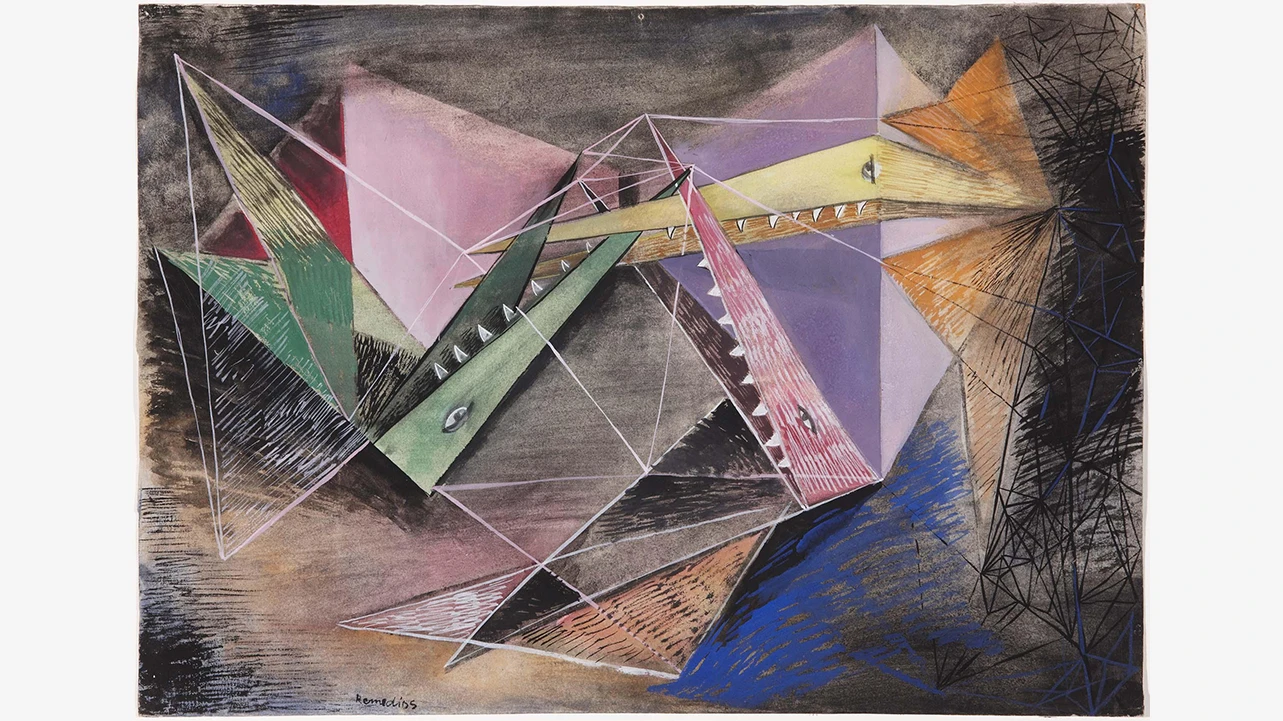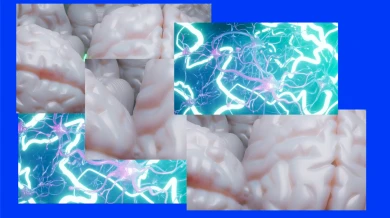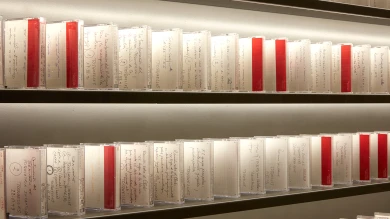From Malaise. Community Mental Health and Critical Institutionalism
Critical Node

Held on 10, 29 Mar, 12, 26 Apr, 17 May 2023
In 2022, a group of people from Entrar Afuera, Nada Colectivo and Museo en Red embarked upon a research process on community mental health, critical institutionalism and the possibility of radio as a practice of collective communication. Therefore, the confluence of these three strands sets forth a hypothesis on cultural practice as a potential space for care and social transformation, inside the framework of structural forms of malaise rooted in the capitalist system.
From such a collective process, which solidifies in the RRS Radio podcast From Malaise and aims to expand research towards new gazes, comes this new Critical Node in 2023, part of Connective Tissue, the Museo Reina Sofía’s Study Programme.
This new stage continues by exploring the ways of living and facing contradictions inside and outside institutions, from first-person experience, artistic practice, institutional work and activism.
[dropdown]
Entrar Afuera is a militant research collective which explores forms of social care, considering and acting in relation to the link between public institutions and territories. Its participants live and work in Madrid and Trieste, in Italy. This Node features the participation of Marta Pérez and Irene Rodríguez Newey.
Locus* (Nada Colectivo) is a project based in the vulnerable Puente de Vallecas neighbourhood in Madrid, exploring the confluence of community culture and mental health. It subverts the concept of “a safe place” — which in psychiatric hegemony is related to spaces of police containment and health — through different contemporary creative languages and stressing co-existence with madness rooted in mutual support. This Node features the participation of Francesca Alessandro and Ana CSC.
Museo en Red is an area in the Museo Reina Sofía’s Public Activities Department which works to develop sustained dialogue and collaborations with different national and international agents and collectives, both in the artistic sphere and in activism and thought. This Node features the participation of Sara Buraya Boned and Celina Poloni.
[/dropdown]
Friday, 10 March 2023 - 6:30 pm / Nouvel Building, Workshops
The Culture of Malaise
This session aims to reflect on, embody and put forward tools of care which subvert the hegemonic concept of malaise — ableist, punitivist, iatrogenic; namely that which is caused by the medical institution — towards a radical concept (imaginative, collectivist, anti-establishment) that acts as a bridge to the sessions that follow. Therefore, it approaches certain key concepts related to psychological malaise, its history as a social agent and its politicisation as a force of resistance from the optics of the international social movement Orgullo Loco (Mad Pride) and from the specific experience of the cultural project Locus*.
Wednesday, 29 March 2023 - 6:30pm / Nouvel Building, Workshops and Sabatini Building, Floor 3
Genealogies of Art and Madness
In a drift through the Museo, this session seeks to explore different narratives from, and on, madness, stressing how they become inserted inside accounts on mental health and other forms of contemporary malaise in exhibition space. Moreover, starting from the history of the Museo Reina Sofía as a former hospital, it explores its roles as a public art institution, understanding it at once as a space of representation and care and political imagination.
Wednesday, 12 April 2023 - 6:30pm / Nouvel Building, Workshops
Work and Precarity
In a society where people’s mental health is linked to their capacity to produce, the logics of paid work — or the lack thereof — increase the risk of encountering psychological suffering. This third section articulates the crossroads between work and health, analysing how production dynamics contaminate all realms of life, inhabiting and interpreting the tensions produced from the socio-economic sphere and generating creative strategies of introspection, self-defence and micro-politics.
Wednesday, 26 April 2023 - 6:30pm / To be announced soon
Institutionalism, Malaise and Care Practices
The lives of human beings pass in almost permanent contact with institutions such as schools, medical centres and museums, places where life is created, cared for and sustained but also spaces that are ultimately unable to open out and understand and welcome the lives of those who inhabit them. In this collective session, Entrar Afuera sets forth a journey through such territories swamped with norms, walls and pre-defined power logics, analysing their contradictions in an exercise of imagination which sheds light on how to make possible, and who does so, other forms of institutionalism.
Wednesday, 17 May 2023 - 6:30 h / Nouvel Building, Protocol Room
Radio as Bonfire
The closing session of the Critical Node From Malaise is put forward as a sound laboratory which explores the possibilities of radio as a practice of collective communication. which sheds light on how to make possible, and who does so, other forms of institutionalism.
Organised by
Entrar Afuera, Locus* (Nada Colectivo) and Museo Reina Sofía
Inside the framework of
Participants
Participants
Más actividades

Difficulty. Forms and Political Effects of Deviation in Writing and Contemporary Art
23 February – 14 December 2026 – Check programme
Difficulty. Forms and Political Effects of Deviation in Writing and Contemporary Art is a study group aligned towards thinking about how certain contemporary artistic and cultural practices resist the referentiality that dominates the logics of production and the consumption of present-day art. At the centre of this proposal are the concepts of difficulty and deviation, under which it brings together any procedure capable of preventing artistic forms from being absorbed by a meaning that appears previous to and independent from its expression. By ensuring the perceptibility of their languages, difficulty invites us to think of meaning as the effect of a signifying tension; that is, as a productive and creative activity which, from the materiality of art objects, frees aesthetic experience from the representational mandate and those who participate in it from the passiveness associated with tasks of mimesis and decoding.
The economy of the referential norm translates the social logic of capitalism, where insidious forms of capturing subjectivity and meaning operate. In the early 1980s, and adopting a Marxist framework, poet Ron Silliman highlighted how this logic entailed separating language from any mark, gesture, script, form or syntax that might link it to the conditions of its production, rendering it fetichised (as if without a subject) and alienating its users in a use for which they are not responsible. This double dispossession encodes the political strategy of referential objectivity: with no subject and no trace of its own consistency, language is merely an object, that reality in which it disappears.
The political uses of referentiality, more sophisticated today than ever before, sustain the neoliberal-extractivist phase of capitalism that crosses through present-day societies politically, economically and aesthetically. Against them, fugitive artistic practices emerge which, drawing from Black and Queer studies and other subaltern critical positions, reject the objective limits of what exists, invent forms to name what lies outside what has already been named, and return to subjects the capacity to participate in processes of emission and interpretation.
Read from the standpoint of artistic work, the objective capture of referentiality may be called transparency. Viewed from a social contract that reproduces inequality in fixed identity positions, transparent in this objectivity are, precisely, the discourses that maintain the status quo of domination. Opposite the inferno of these discourses, this group aims to collectively explore, through deviant or fugitive works, the paradise of language that Monique Wittig encountered in the estranged practices of literature. For the political potency of difficulty — that is, its contribution to the utopia of a free language among equals — depends on making visible, first, its own deviations; from there, the norm that those deviations transgress; and finally, the narrowness of a norm which in no way exhausts the possibilities ofsaying, signifying, referring and producing a world.
From this denouncement of referential alienation, fetishisation and capture, Difficulty. Forms and Political Effects of Deviation in Writing and Contemporary Art turns its attention to the strategies of resistance deployed by contemporary artists and poets. Its interest is directed towards proposals as evidently difficult or evasive as those of Gertrude Stein, Lyn Hejinian, Theresa Hak Kyung Cha, Kameelah Janan Rasheed, Kathy Acker, María Salgado and Ricardo Carreira, and as seemingly simple as those of Fernanda Laguna, Felix Gonzalez Torres and Cecilia Vicuña, among other examples that can be added according to the desires and dynamics of the group.
The ten study group sessions, held between February and December, combine theoretical seminars, work with artworks from the Museo Reina Sofía’s Collections and exhibitions, reading workshops and public programs. All these formats serve as spaces of encounter to think commonly about certain problems of poetics — that is, certain political questions — of contemporary writing and art.
Difficulty. Forms and Political Effects of Deviation in Writing and Contemporary Art inaugurates the research line Goodbye, Representation, through which the Museo Reina Sofía’s Studies Directorship seeks to explore the emergence of contemporary artistic and cultural practices which move away from representation as a dominant aesthetic-political strategy and redirect their attention toward artistic languages that question the tendency to point, name and fix, advocating instead for fugitive aesthetics. Over its three-year duration, this research line materializes in study groups, seminars, screenings and other forms of public programming.

Remedios Zafra
Thursday March 19, 2026 - 19:00 h
The José Luis Brea Chair, dedicated to reflecting on the image and the epistemology of visuality in contemporary culture, opens its program with an inaugural lecture by essayist and thinker Remedios Zafra.
“That the contemporary antifeminist upsurge is constructed as an anti-intellectual drive is no coincidence; the two feed into one another. To advance a reactionary discourse that defends inequality, it is necessary to challenge gender studies and gender-equality policies, but also to devalue the very foundations of knowledge in which these have been most intensely developed over recent decades—while also undermining their institutional support: universities, art and research centers, and academic culture.
Feminism has been deeply linked to the affirmation of the most committed humanist thought. Periods of enlightenment and moments of transition toward more just social forms—sustained by education—have been when feminist demands have emerged most strongly. Awareness and achievements in equality increase when education plays a leading social role; thus, devaluing intellectual work also contributes to harming feminism, and vice versa, insofar as the bond between knowledge and feminism is not only conceptual and historical, but also intimate and political.
Today, antifeminism is used globally as the symbolic adhesive of far-right movements, in parallel with the devaluation of forms of knowledge emerging from the university and from science—mistreated by hoaxes and disinformation on social networks and through the spectacularization of life mediated by screens. These are consequences bound up with the primacy of a scopic value that for some time has been denigrating thought and positioning what is most seen as what is most valuable within the normalized mediation of technology. This inertia coexists with techno-libertarian proclamations that reactivate a patriarchy that uses the resentment of many men as a seductive and cohesive force to preserve and inflame privileges in the new world as techno-scenario.
This lecture will address this epochal context, delving into the synchronicity of these upsurges through an additional parallel between forms of patriarchal domination and techno-labor domination. A parallel in which feminism and intellectual work are both being harmed, while also sending signals that in both lie emancipatory responses to today’s reactionary turns and the neutralization of critique. This consonance would also speak to how the perverse patriarchal basis that turns women into sustainers of their own subordination finds its equivalent in the encouraged self-exploitation of cultural workers; in the legitimation of affective capital and symbolic capital as sufficient forms of payment; in the blurring of boundaries between life and work and in domestic isolation; or in the pressure to please and comply as an extended patriarchal form—today linked to the feigned enthusiasm of precarious workers, but also to technological adulation. In response to possible resistance and intellectual action, patriarchy has associated feminists with a future foretold as unhappy for them, equating “thought and consciousness” with unhappiness—where these have in fact been (and continue to be) levers of autonomy and emancipation.”
— Remedios Zafra

27th Contemporary Art Conservation Conference
Wednesday, 4, and Thursday, 5 March 2026
The 27th Contemporary Art Conservation Conference, organised by the Museo Reina Sofía’s Department of Conservation and Restoration, with the sponsorship of the Mapfre Foundation, is held on 4 and 5 March 2026. This international encounter sets out to share and debate experience and research, open new channels of study and reflect on conservation and the professional practice of restorers.
This edition will be held with in-person and online attendance formats, occurring simultaneously, via twenty-minute interventions followed by a five-minute Q&A.

Cultural Work
Thursday, 12 February 2026 – 5:30pm
This series is organised by equipoMotor, a group of teenagers, young people and older people who have participated in the Museo Reina Sofía’s previous community education projects, and is structured around four themed blocks that pivot on the monstrous.
Session number two looks to approach film as a place from which cultural work is made visible and processes of production engage in dialogue with artistic creation. From this premise, the session focuses on exploring how audiovisual content is produced, assembled and distributed, from the hands that handle the images to the bodies that participate in its circulation. The aim is to reflect on the invisible effort, precarity and forms of collaboration that uphold cultural life, that transform the filmic experience into an act that recognises and cares for common work.

Alberto Greco. Viva el arte vivo
Tuesday, 10 February 2026 – 7pm
In conjunction with the opening of the exhibition Alberto Greco. Viva el arte vivo, Fernando Davis, the show’s curator, and Amanda de la Garza, the Museo Reina Sofía’s deputy artist director, will converse in the Nouvel Building’s Auditorium 400 on the life and work of the Argentinian artist, a core figure in experimental avant-garde art.
The title of both exhibition and conversation originates from the proclamation “Long Live Arte Vivo” Alberto Greco (Buenos Aires, 1931— Barcelona, 1965) disseminated around the streets and on the walls of Rome. For Greco, arte vivo was an art of the future, an art based on a set of irreverent and untimely gestures, of adventures open to unpredictability melding with life, and which began in 1962, prior to his coining of the term “vivo-dito”. In his Manifiesto dito dell´arte vivo (Dito Arte-Vivo Manifesto), which he pasted on the walls of Genoa, Greco encouraged new contact “with the living elements of our reality: movement, time, people, conversations, smells, rumours, places, situations”. He would also burst into the everyday of Madrid’s streets as he convened a “vivo-dito moment”, culminating in the burning of a canvas painted collectively in Madrid’s Lavapiés neighbourhood.
In addition to founding arte vivo, Alberto Greco was an informalist painter, a queer flâneur, a poet and sometime actor. This intense journey of Greco’s life and art is closely connected to the migrant route he embarked upon in 1950 in Buenos Aires, taking in Atacama and Humahuaca, Paris, Rio de Janeiro, São Paulo, Genoa, Rome, Madrid, Piedralaves, New York and Ibiza and ending abruptly in Barcelona, where he took his own life shortly after writing his final great work, the novel Besos brujos (Bewitching Kisses, 1965).
These inaugural conversations, part of the main working strands of the Museo’s Public Programmes Area, aim to explore in greater depth the exhibition narratives of the shows organised by the Museo from the perspective of artists, curators and specialists.
